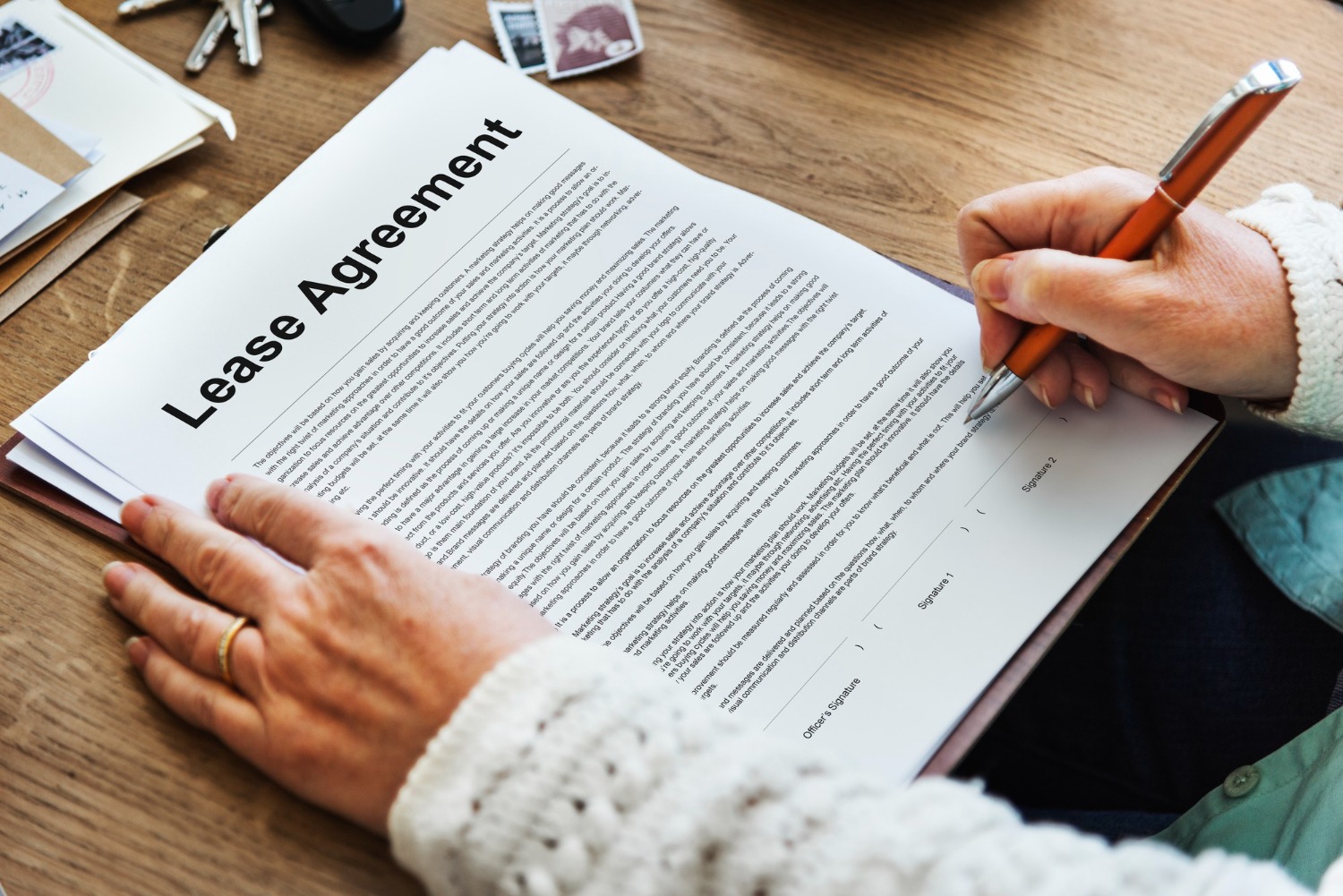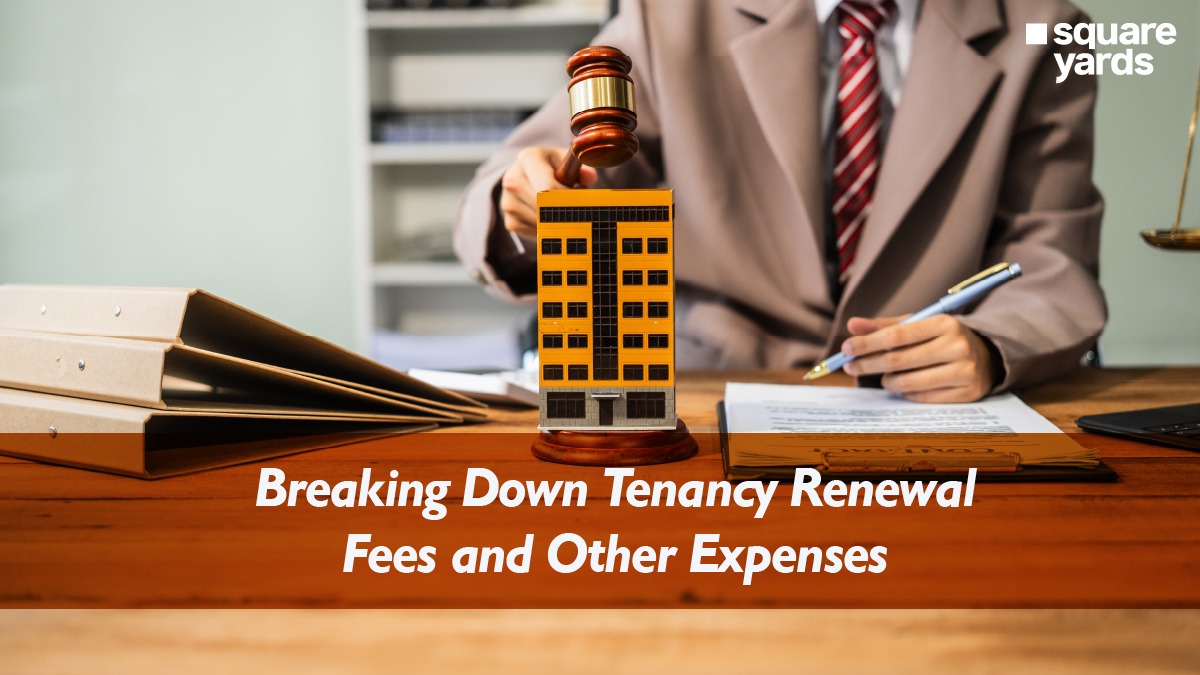Navigating Dubai’s tenancy contract renewal process can confuse many residents. With the city’s active real estate market and unique rental rules, tenants and landlords must know the tenancy renewal agreements. If you’re a long-term resident or new to the city, you must know about Dubai’s tenancy contract renewal fee. It can save you from unexpected expenses and legal issues. In this blog, we will delve into everything you need to know about tenancy contract renewal in Dubai.
Understanding Tenancy Renewal Agreement

Tenancy renewal extends an existing rental agreement between a tenant and landlord for a specified period. It is governed by the Dubai Real Estate Regulatory Agency (RERA). Tenancy renewal involves maintaining the original contract or agreeing to new terms. It requires a 90-day notice for any changes and follows the Dubai Land Department’s rent increase cap. The renewal process includes signing a tenancy renewal agreement and registering it with the DLD, often through the Ejari system. It involves potential rent increases, security deposit adjustments, and agency fees. Understanding these aspects and the Dubai tenancy contract renewal rules is crucial for a smooth and legally compliant renewal process.
How to Successfully Renew Your Tenancy Contract?
Law requires a 90-day notice when the landlord intends to increase the rent or the tenant plans to relocate. Landlords can raise the rent after a year, but any increase must comply with the guidelines established by RERA’s Rental Index. Tenants can use the RERA rental calculator in Dubai to ensure a fair renewal amount. If the proposed rent significantly exceeds the average market rate for similar properties in the area, tenants have the legal right to challenge it. Once both parties agree on the new rent and payment terms, they can renew the tenancy contract for another year. Before you decide to renew your lease, consider potential potential costs.
Preparing For Lease Renewal

Renewing the lease can offer tenants stability if they have a good relationship with their landlord. Additionally, searching for a new rental property can be time-consuming. Tenants need to evaluate several factors before deciding on a new rental home. Therefore, renewing an existing lease can save time and effort. It also ensures that the terms mutually benefit tenants and landlords. Here’s a checklist to consider when renewing your tenancy contract. It will ensure you address all important factors and have a smooth renewal process.
-
Future Goals
According to RERA tenancy laws, tenants must inform their landlord 90 days before their lease contract expires if they intend to renew it. Therefore, tenants must consider and communicate their plans to the landlord accordingly.
The plans encompass various factors such as job requirements, lifestyle preferences, the condition of the building, and available amenities and facilities. If the current home meets these needs, tenants can renew the contract.
-
Financial Planning for a Tenancy Contract Renewal
When planning to renew a tenancy contract, reviewing your budget and anticipating potential rent increases is important. The RERA rental increase calculator can help you estimate the annual rent costs in Dubai, aiding in effective budget planning.
Tenants should also remember to account for additional expenses, such as:
-
- Utility bills
- Municipality housing fees
- Ejari renewal fees (for properties in Dubai) or Tawtheeq renewal fees (for properties in Abu Dhabi)
-
Home Upkeep
In Abu Dhabi, Dubai, and other Emirates, tenancy laws require landlords to ensure that rental properties are in good condition. However, if the property needs significant repairs or maintenance, landlords have the right to deny the contract renewal. In such scenarios, tenants might need to find a new rental home that fits their budget. Following a thorough checklist when entering a new rental agreement is important to ensure all conditions are satisfactory.
-
Contract Terms of a Tenancy Renewal Agreement
A good relationship with your landlord can be beneficial when renewing your tenancy contract. You may be able to negotiate specific terms, such as allowing pets. Reviewing the renewal lease contract terms ensures everything is clear and agreed upon. Landlords might also seek a lease valuation certificate in Dubai to justify rent increases. Therefore, understanding and agreeing to the contract terms in detail can help avoid potential conflicts in the future.
-
Quality of Life
When renewing your tenancy contract, it’s important to consider your current lifestyle needs. Your rental home might require updates or repairs and may be in a different condition than when you initially moved in. If you decide to relocate, you can request a refund of your security deposit from the landlord. This allows you to explore different neighbourhoods that offer more amenities and facilities, such as gyms, swimming pools, shopping malls, and supermarkets, thereby enhancing your overall quality of life.
Different Property Renewal Expenses
Dubai boasts a wide array of properties, ranging from affordable apartments to luxury villas. The Dubai Real Estate Regulatory Agency (RERA), a part of the Dubai Land Department, ensures that all property dealings are transparent and fair, safeguarding tenants from paying excessive fees for renewing their leases. Below is an outline of the tenancy renewal agreement fees and associated costs per RERA’s rental property guidelines.
-
Rental Payments
Tenants must pay rent as per the terms agreed with the landlord. Typically, you must provide post-dated cheques for the total annual rent unless you arrange a different payment method. You and the landlord should decide on the number of cheques and the payment schedule together. If you and the landlord agree to any changes in the rental amount, document these changes in the tenancy contract. This helps ensure transparency and prevents any future disputes over rent payments.
-
Ejari Renewal Costs
Renewing your Ejari registration is crucial to avoid hefty fines of up to AED 50,000 imposed by RERA. You can renew your Ejari for AED 120 via the REST application or for AED 215 plus VAT through the Real Estate Services Trustees Centres. Ensuring your Ejari is up-to-date is vital for compliance with Dubai’s rental regulations.
-
Service Fees
Property owners must fully pay all service charges to avoid complications with Ejari renewal. Failing to clear these charges can prevent renewal, thereby restricting access to essential services like water and electricity. This regulation aims to address the growing issue of unpaid service fees. If you’re uncertain about these costs, becoming familiar with Dubai’s service charges is important to ensure compliance and avoid any service disruptions.
-
Housing Levies
When you renew a tenancy agreement, you will incur an additional cost: the housing levy, which is 5% of the annual rent paid to the Dubai Municipality. The Dubai Municipality spreads this fee over 12 monthly payments, which are included in your Dubai Electricity and Water Authority (DEWA) bill, making it manageable alongside other utility expenses.
-
Upkeep Charges
When renewing an Ejari contract, landlords are typically responsible for covering annual maintenance fees charged by developers like Emaar, Nakheel, and Dubai Properties. Some landlords might pass these fees on to tenants, so verifying this in the renewed tenancy agreement is crucial. A property agent or agency may also charge an administrative fee for drafting and renewing the contract. However, agents cannot impose brokerage, maintenance, or extra fees beyond this administrative charge.
What are the Service Terms When Renewing A Tenancy Contract?
The service terms for the tenancy contract renewal agreement depend on the registration portal one chooses. The following are mentioned below –
-
Registration via Real Estate Services Trustee Offices:
- The property should not be under the management of a real estate company, or the owner must have the authority to use the Ejari system.
- The lessee (tenant) or their representative must hold an official power of attorney.
- The owner must own the property or have an official power of attorney to represent it.
-
Registration via Applications:
- Both the tenant and the property owner must be individuals. Make sure the owner’s details are current.
-
Registration via the System:
-
For Companies:
-
The company must hold a valid license for real estate management as per regulatory requirements.
-
-
For Individual Owners:
-
The property must be owned and managed directly by the individual.
-
- For Representatives of Owners:
The representative must possess a legal power of attorney to oversee property management.
Conclusion
Understanding how to renew your tenancy contract in Dubai is important for tenants and landlords. This process includes giving a 90-day notice for changes and following Dubai tenancy contract renewal rules. Tenants should know the potential costs, including rent increases, security deposit changes, utility bills, and Ejari renewal fees. Planning your budget, communicating clearly with your landlord, and reviewing the contract terms are key to a smooth tenancy renewal agreement. A good relationship with your landlord can also help you negotiate better terms. By being prepared and informed, you can make the best decisions about your tenancy contract renewal and ensure your home continues to meet your needs.
Similar Suggestions:
|
Apply For Housing Construction Grant In Dubai. |
|
|
How to Apply For Housing Land in Dubai |
|
|
Gifted Property in Dubai |
|
|
Guide to Dubai Rental Properties |
|
|
What is Emirates Real Estate Solutions (ERES) |
|
|
Understanding Dubai Property Investment |
|
|
About Property Valuation in Dubai |
Frequently Asked Questions(FAQ’s):
Terminating a lease early in Dubai can result in penalties such as forfeiture of the security deposit, payment of remaining rent until a new tenant is found, and additional legal fees. Always review the lease agreement for specific terms and conditions.
Yes, landlords and tenants can renew the tenancy contract directly without involving an agent. Both parties can mutually agree to do this and submit the appropriate documentation to the relevant authorities.
Real estate companies or agents can charge a fee for renewing Ejari, which typically includes administrative costs. The fee should be clearly stated and agreed upon in advance.
Both parties should renew the tenancy contract at least 90 days before its expiration to allow for negotiation of terms and making necessary arrangements.
Renewing a tenancy contract online involves accessing the relevant online portal, such as the Dubai Land Department's website, entering the necessary details, uploading required documents, and paying any applicable fees. This process is designed to be user-friendly and efficient.
Yes, additional costs can include Ejari renewal fees, service charges, maintenance fees, and housing fees. When planning for tenancy renewal, it's essential to factor these costs into your budget.
Alternatives to avoid paying a tenancy renewal fee include negotiating with the landlord for a lower renewal cost or exploring rental properties that offer incentives such as waived renewal fees.
Yes, it is advisable to include tenancy renewal costs in your rental budget to ensure that you are financially prepared for these expenses when they arise. This includes considering all associated fees and potential rent increases. What are the consequences of terminating a lease early in Dubai?
Can the landlord and tenant renew the tenancy contract without an agent?
Can a real estate company or agent charge a fee to renew Ejari?
When is the appropriate time to renew the tenancy contract?
What steps are involved in renewing a tenancy contract online?
Are there any additional costs associated with tenancy renewal?
What alternatives are available to avoid paying a tenancy renewal fee?
Should tenancy renewal costs be included in my rental budget?




